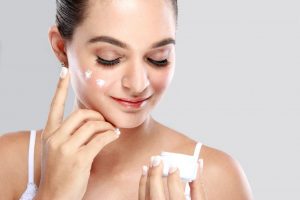Our skin, a complex and dynamic organ, serves as a protective barrier between our bodies and the external environment. However, its intricate nature also makes it susceptible to a range of dermatological concerns that can impact both our physical well-being and self-confidence. This article delves into the science behind common skin issues, shedding light on the underlying mechanisms and offering insights into effective management.
Acne: Unraveling the Complexities
Acne, a widespread concern that affects individuals of all ages, has its roots in the sebaceous glands – structures responsible for producing oil. Hormonal fluctuations stimulate these glands, leading to excess oil production. When combined with dead skin cells, the oil can clog hair follicles, creating an environment conducive to bacterial growth. Inflammation follows, resulting in the characteristic redness and swelling of pimples.
Eczema: A Disrupted Barrier
Eczema, or atopic dermatitis, involves a disruption in the skin’s barrier function. Genetic factors can compromise the skin’s ability to retain moisture, leaving it susceptible to irritation and allergens. This leads to redness, itching, and inflammation. Understanding eczema’s genetic component underscores the importance of a comprehensive approach involving moisturization, gentle cleansers, and avoidance of triggers to manage symptoms.
Hyperpigmentation: A Melanin Story
Hyperpigmentation arises when the skin produces excess melanin, the pigment responsible for its color. Sun exposure, hormonal changes, and inflammation can trigger an overproduction of melanin, leading to dark spots or uneven skin tone. Addressing hyperpigmentation involves interrupting the process of melanin formation through ingredients like hydroquinone, vitamin C, and retinoids. Sun protection is also paramount to prevent further darkening.
Psoriasis: An Immune Response
Psoriasis is an autoimmune disorder in which the immune system mistakenly attacks healthy skin cells, leading to an accelerated skin cell turnover process. This results in the accumulation of skin cells on the surface, causing thick, red, and scaly patches. Understanding psoriasis as an immune response underscores the importance of managing inflammation through treatments like topical corticosteroids, phototherapy, or systemic medications.
Rosacea: Vasculature and Triggers
Rosacea involves the expansion of blood vessels near the surface of the skin, leading to facial redness and visible blood vessels. Triggers such as sunlight, hot beverages, spicy foods, and stress can exacerbate symptoms. Recognizing the role of vasculature and triggers highlights the need for avoiding triggers and using gentle skincare products to manage redness and inflammation.
Navigating the Terrain of Dermatological Concerns
While the science behind these dermatological concerns is complex, effective management often involves a combination of scientific knowledge and practical solutions. Consulting a dermatologist is invaluable, as they can provide accurate diagnoses and recommend evidence-based treatments tailored to your unique needs. Understanding the root causes empowers individuals to make informed decisions, embrace preventative measures, and seek professional guidance when needed.
Conclusion
The science of skin encompasses a vast and intricate landscape, where genetics, immune responses, and environmental factors intersect. By delving into the mechanisms behind common dermatological concerns, we gain a deeper appreciation for the body’s complexity. Armed with this knowledge, we’re better equipped to navigate the world of skincare, choosing strategies that not only address concerns but also promote overall skin health. As we bridge the gap between science and skincare, we unlock the potential to care for our skin in a holistic and effective manner, ultimately enhancing our well-being and self-confidence.









Add Comment